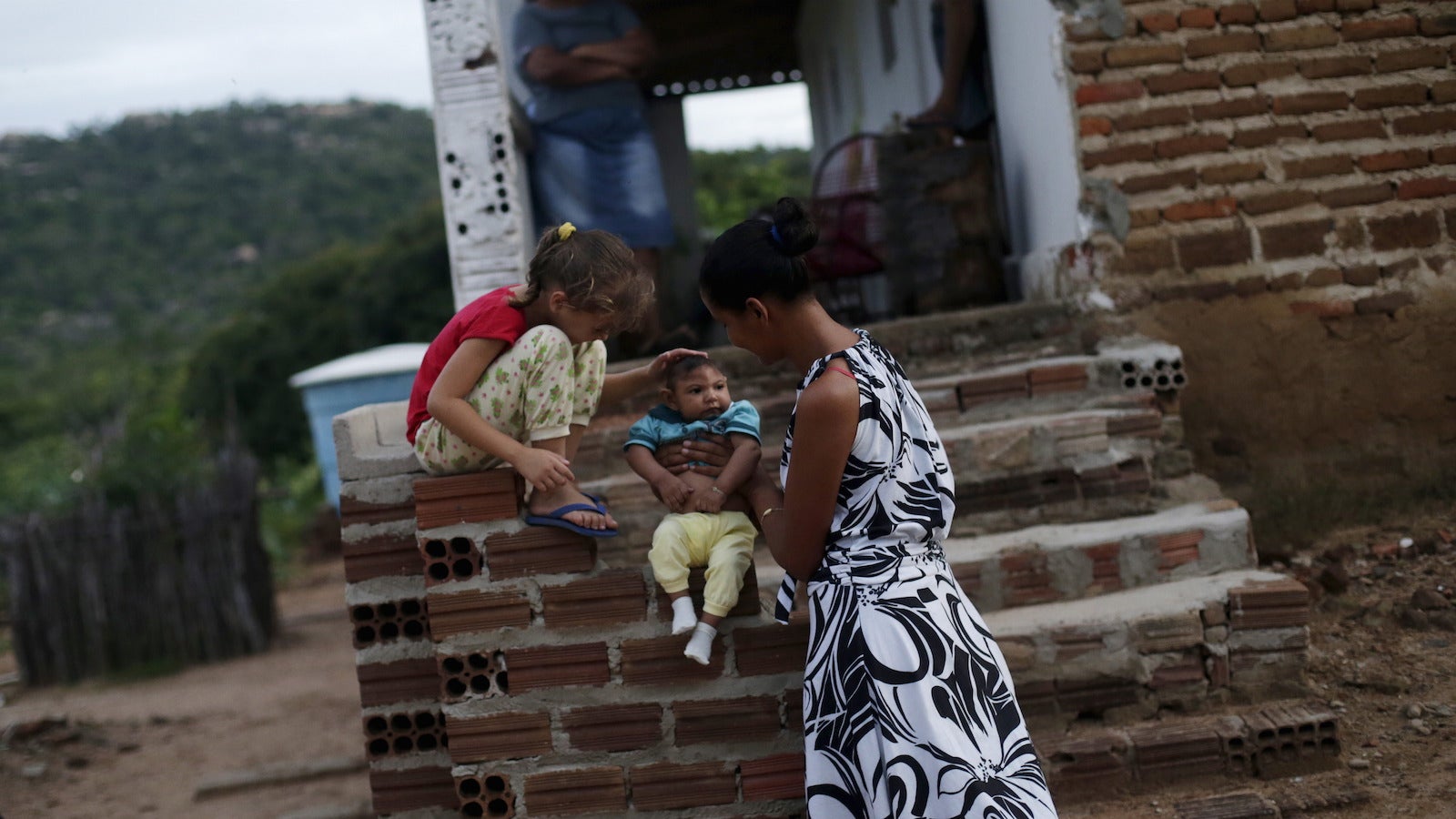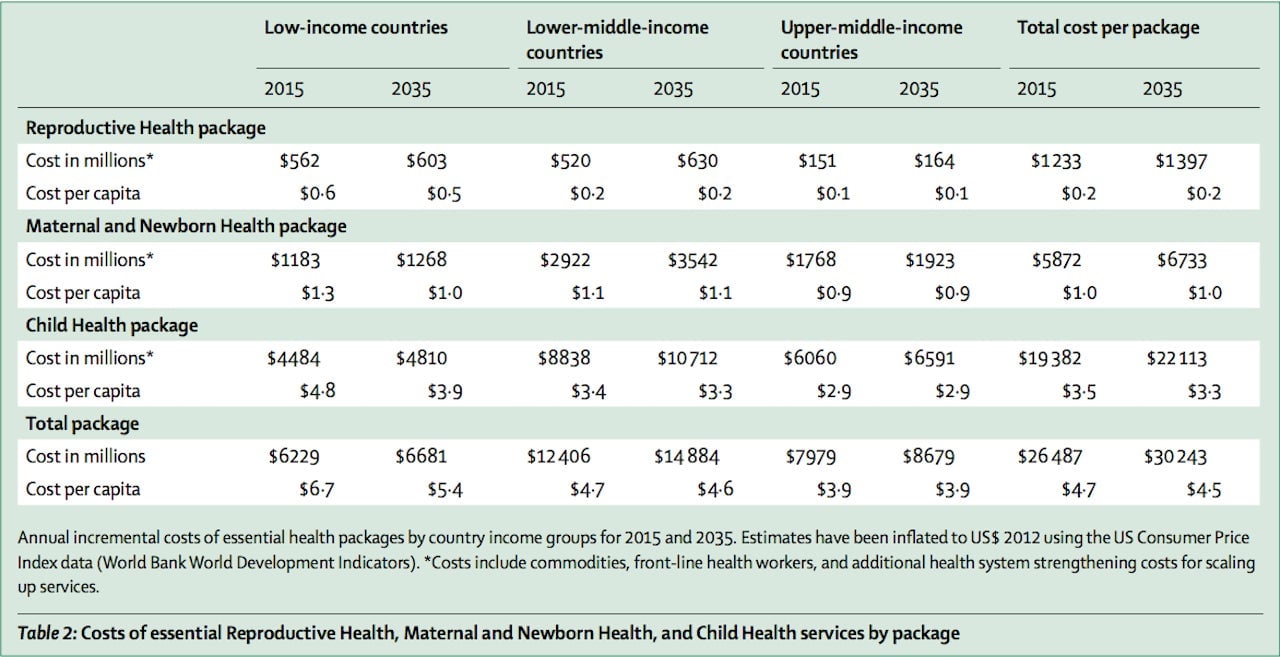Expanding life-saving health care in poor nations would cost $5 per person, researchers say
Basic health care doesn’t have to be expensive. New research, funded by the Bill & Melinda Gates Foundation, found that we could expand health care for mothers, infants, and children in low- and middle-income nations for less than $5 per person per year. And it would save millions of lives.


Basic health care doesn’t have to be expensive. New research, funded by the Bill & Melinda Gates Foundation, found that we could expand health care for mothers, infants, and children in low- and middle-income nations for less than $5 per person per year. And it would save millions of lives.
In 2015, nearly 6 million children under the age of five died, while more than 300,000 women died from pregnancy-related causes around the world, the study said. A team led by researchers at Johns Hopkins found that more half of those deaths could have been prevented through basic reproductive, maternal, newborn, and child health-care services, such as birth control, pregnancy and delivery care, nutritional supplements, and treatments for serious diseases like pneumonia and malaria.
The study, published on April 9 in the Lancet, said that bringing these services to 90% of those in need in 74 of the 75 neediest nations would drastically reduce maternal and child mortality rates in those countries. (Sudan was excluded from the report because there wasn’t enough data available.) The researchers estimated that the lives of 1.5 million newborns, 1.5 million children, and 149,000 mothers would have been saved had such services been available last year.
It wouldn’t cost much to scale up those services. In 2015, it would have cost about $26.5 billion to scale up reproductive, maternal and newborn, and child health-care services to meet 90% of unmet needs in 74 neediest nations, where 95% of mother and child deaths occur, according to the study. That includes the cost of hiring more workers and building health care infrastructure. That works out to an average of $4.70 per person per year.

“Our analysis shows that expanding access to care to keep more mothers and children alive and healthy is feasible and a highly cost-effective investment,” said the report’s lead author, Robert Black, in a statement. “Community health workers or primary health centers can deliver the majority of these services, which reduces the cost of expanding coverage.”
Despite limited resources, countries including Bangladesh and Ethiopia have expanded essential health services by leaning on community workers and primary health centers.
The study analyzed the progress of Millennium Development Goals adopted by 189 world leaders in 2000 to reduce maternal and child deaths by 2015. The goals called for a two-thirds reduction in child mortality from 1990 level and a three-quarters reduction in maternal mortality by 2015. According to a 2015 progress report, at least 35 of the 75 neediest nations, including Cambodia, Congo, Pakistan, and South Africa, have met these goals, but many fell short. Black said the paper aims to identify the most effective and cost-effective solutions in the hope of shaping future global policy.